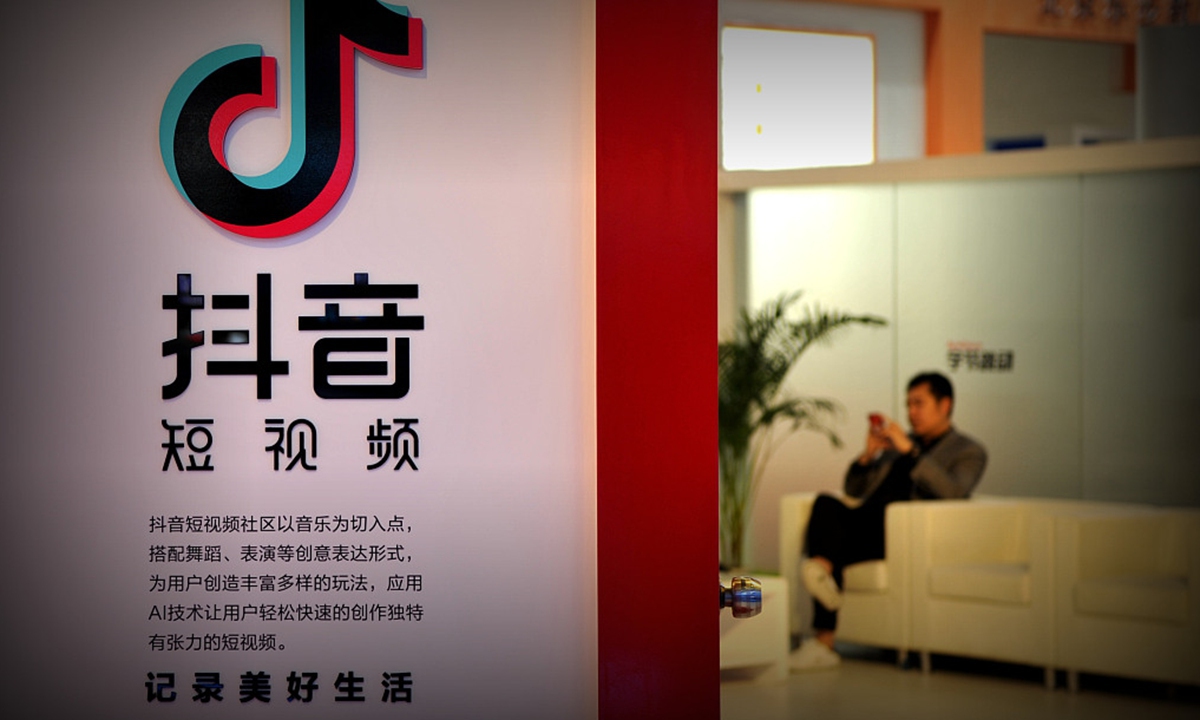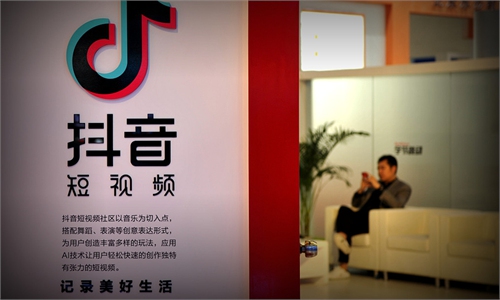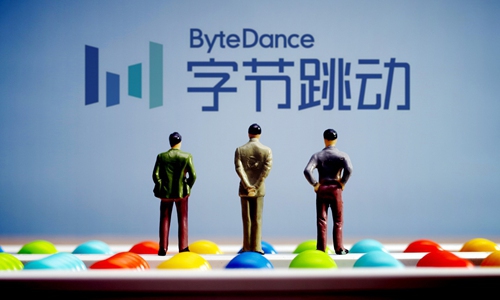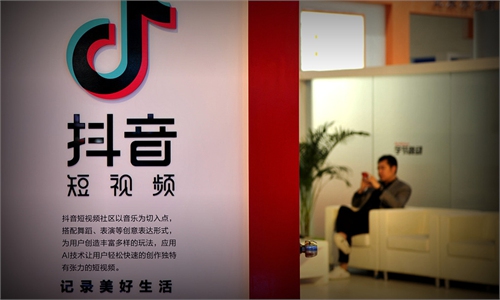ByteDance withdraws lawsuit against Tencent at Fujian Court
Case transferred to Shenzhen court according to jurisdiction

Douyin Photo:VCG
ByteDance, the owner of the video-sharing platform Douyin, confirmed with the Global Times on Monday that it has withdrawn the lawsuit against Chinese tech giant Tencent over alleged unfair competition at Fujian Provincial Higher People's Court.
The case has been transferred to a court in Shenzhen, South China’s Guangdong Province, as Tencent previously proposed to the Fujian court in East China that the jurisdiction of the case should be vested in the court where the agreement was signed with WeChat and QQ developers.
Douyin filed an appeal against the jurisdictional decision to transfer the case concerning Tencent, from the Fuzhou Intermediate People's Court to the Shenzhen Intermediate People's Court, as announced in December last year.
Fuzhou Intermediate People's Court held the view that the jurisdiction of the case shall be applied in accordance with the agreement with WeChat and QQ, Tencent's instant messaging tools. During the hearing, the court ruled that the case shall be based where the agreement was signed.
Tencent's headquarters are located in Shenzhen, South China's Guangdong Province, while ByteDance is based in Beijing.
The case traces back to September 2019 when Douyin accused both WeChat and QQ platforms from restricting users from freely sharing Douyin videos on their platforms through technical means, while videos from other apps including Kuaishou are not restricted from being shared, so Tencent's behavior constituted unfair competition.
In response, Tencent said the case is in fact a contract dispute arising from the use of WeChat and QQ platforms to publish Douyin's short video products. Therefore, the case should be placed in the jurisdiction agreed in the contract, which is Shenzhen, according to a report by thepaper.cn on Monday.
It is noticeable that the case is separate from a lawsuit filed in early February by Douyin at the Beijing Intellectual Property Court (BIPC) against Tencent for allegedly creating a monopoly.
It was the first ever case of a domestic anti-monopoly lawsuit between two heavyweight internet platforms since the launch of a regulatory guideline for anti-monopoly acts in the economic sector at the end of 2020.
The BIPC accepted the case on February 7.



